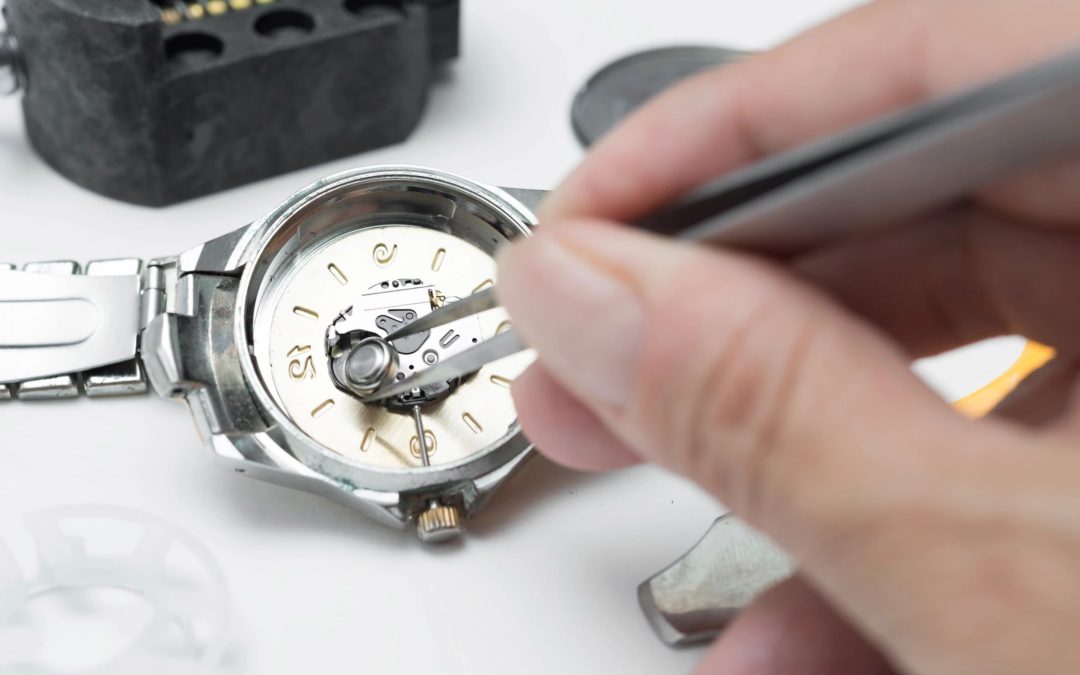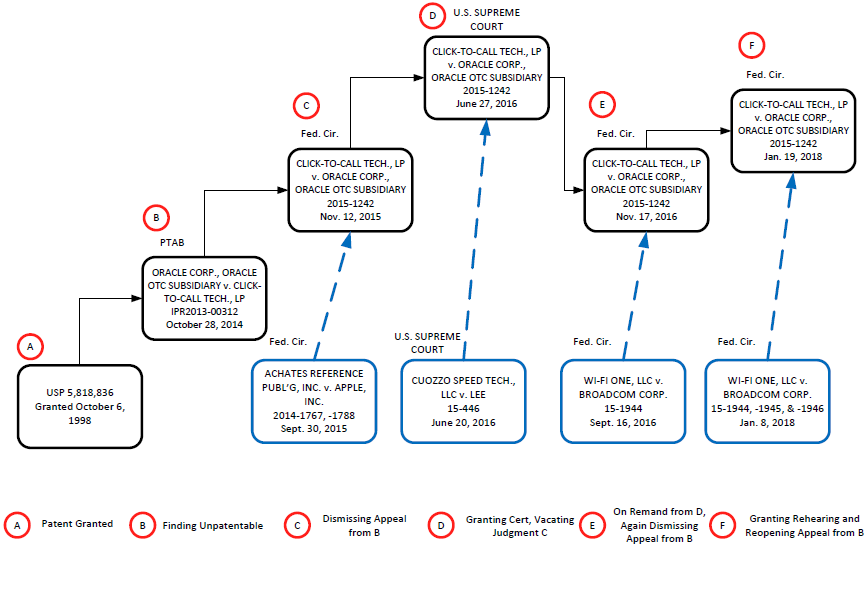By: Amanda Leckman and Carl Kukkonen
Eleven days after the Federal Circuit’s en banc opinion in Wi-Fi Onc, LLC v. Broadcom Corp., Nos. 15-1944, -1945 & -1946 (Fed. Cir. Jan. 8, 2018), a three-judge panel granted a petition by patent owner Click-to-Call Technologies, LP (“CTC”) for panel rehearing. The court in Wi-Fi One held that judicial review is available for a patent owner to contest a determination by the PTO that the petitioner met the requirements of 35 U.S.C. § 315(b). An “inter partes review may not be instituted if the petition requesting the proceeding is filed more than 1 year after the date on which the petitioner…is served with a complaint alleging infringement of the patent.” 35 U.S.C. § 315(b).
CTC had previously appealed in 2014 from an adverse PTAB final written decision on patentability. CTC argued that the petition in the IPR proceeding should have been barred under § 315(b). The Federal Circuit dismissed the appeal for lack of jurisdiction, citing their earlier holding in Achates Reference Publishing, Inc. v. Apple, Inc. 803 F.3d 652 (Fed. Cir. 2015) that 35 U.S.C. § 314(d) prohibits judicial review based on § 315(b) of the PTAB’s determination to institute IPR proceedings.
CTC petitioned for certiorari in 2016. In light of its decision in Cuozzo Speed Technologies, LLC v. Lee, 136 S.Ct. 2131 (2016), the Supreme Court granted certiorari, vacated the judgment, and remanded the case back to the Federal Circuit for further consideration. In its supplemental briefing on remand, CTC argued that Cuozzo limits § 314(d)’s prohibition to challenges to PTAB institution decisions to challenges that are “closely related” to the Board’s substantive patentability determination under § 314(a). CTC further argued that § 315(b) provides an independent jurisdictional limitation on the Board that goes beyond the scope of § 314(d). After the supplemental briefings were submitted, the court issued an initial panel decision in Wi-Fi One that concluded that Cuozzo did not overrule Achates. Wi-Fi One, LLC v. Broadcom Corp, no. 15-1944, (Fed. Cir. Sept. 16, 2016). The Federal Circuit, bound by Wi-Fi One and Achates, once again dismissed CTC’s appeal for lack of jurisdiction.
On January 9, 2018, a majority en banc Federal Circuit considered the statutory language in the AIA, the legislative history of the AIA, and the statutory scheme as a whole in its en banc review of the Wi-Fi One matter. Wi-Fi One, LLC v. Broadcom Corp., Nos. 15-1944, -1945 & -1946 (Fed. Cir. Jan. 8, 2018). The majority in en banc Wi-Fi One concluded that there was no evidence of Congress’s intent to bar judicial review of § 315(b) time-bar determinations. This opened the door for CTC. The Wi-Fi One court’s holding that 315(b) time-bar determinations are appealable provides a form of relief for CTC that it has been seeking for years. CTC will finally have its arguments that the petition challenging its patent claims was barred heard, offering an opportunity to rescue the claims found unpatentable by the PTAB.
Carl Kukkonen
Latest posts by Carl Kukkonen (see all)
- Physical Products Cannot Form Basis of an IPR - July 9, 2025
- PTAB Denies Institution of IPRs in Apple v. Haptic - May 8, 2025
- Federal Circuit Rules That Order Of Steps Sometimes Does Matter - March 11, 2025


